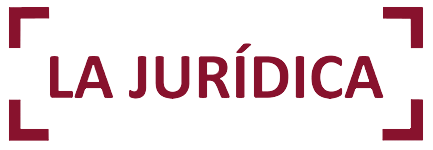INFRACCIONES Y SANCIONES EN EL ORDEN SOCIAL. Régimen jurídico.
- Sinopsis
- Índice
I. LA
POTESTAD SANCIONADORA DE LA ADMINISTRACIÓN EN EL ORDEN SOCIAL: CUESTIONES
GENERALES.
Alberto Cámara Botía
I. Sentido del Derecho Administrativo sancionador del orden social
II. Fuentes Normativas
III. Estado, Comunidades Autónomas y
potestad sancionadora en el orden social
1. LA POTESTAD SANCIONADARA «LABORAL»
2. LA POTESTAD SANCIONADORA SOBRE «SEGURIDAD SOCIAL»
IV. El principio de Legalidad: reserva de ley y tipicidad
V. El principio de culpabilidad
VI. Los convenios colectivos y la potestad sancionadora administrativa
VII. Los sujetos responsables
VIII. Las sanciones: clases y graduación
1. LA MULTA
2. LAS SANCIONES NO PECUNIARIAS
3. EL PRINCIPIO DE PROPORCIONALIDAD Y LOS CRITERIOS DE GRADUACIÓN
DE LAS SANCIONES.
IX. La prescripción de infracciones y
sanciones
1. PRESCRIPCIÓN DE LAS INFRACCIONES
2. PRESCRIPCIÓN DE LAS SANCIONES
II.
INFRACCIONES Y SANCIONES EN MATERIA DE RELACIONES LABORALES
José Luján Alcaraz y Alejandra Selma Penalva
I. Introducción
II. Infracciones y sanciones en materia de relaciones laborales individuales y
colectivas.
A) INFRACCIONES LEVES
B) INFRACCIONES GRAVES
C) INFRACCIONES MUY GRAVES
D) SANCIONES
III. Infracciones y sanciones en materia de derechos de información y consulta
de los trabajadores en las empresas y grupos de empresas de dimensión
comunitaria.
A) INFRACCIONES GRAVES
B) INFRACCIONES MUY GRAVES
C) SANCIONES
III. Infracciones y sanciones de las obligaciones relativas a las condiciones de
trabajo de los trabajadores desplazados temporalmente a España en el mar-
co de una
prestación transnacional.
A) INFRACCIONES LEVES
B) INFRACCIONES GRAVES
C) INFRACCIONES MUY GRAVES
D) SANCIONES
IV. Infracciones y sanciones en materia de derechos de información, consulta y
participación de los trabajadores en las sociedades anónimas y sociedades
cooperativas
europeas.
A) INFRACCIONES GRAVES
B) INFRACCIONES MUY GRAVES
C) SANCIONES
III.
INFRACCIONES Y SANCIONES EN MATERIA DE PREVENCIÓN DE RIESGOS LABORALES
José Luján Alcaraz y Alejandra Selma Penalva
I. Régimen jurídico
II. Sujeto infractor
III. Infracciones
A) INFRACCIONES LEVES
B) INFRACCIONES GRAVES
c) INFRACCIONES MUY GRAVES
IV. Sanciones
V. Responsabilidades empresariales
específicas
IV.
INFRACCIONES Y SANCIONES EN MATERIA DE EMPLEO
Faustino Cavas Martínez
I. Regulación
II. Sujetos responsables
III. Infracciones de los empresarios, de las agencias de co1ocació y de ios be-
neficiarios de ayudas y subvenciones en materia d empleo, ayudas de fo-
mento del
empleo en general y formación profesional ocupacional continua.
A) INFRACCIONES LEVES
B) INFRACCIONES GRAVES
C) INFRACCIONES MUY GRAVES
IV. Infracciones de los trabajadores por cuenta ajena y propia en materia de em-
pleo, ayudas de fomento del empleo en general y formación profesional ocu-
pacional y
continua.
A) INFRACCIONES LEVES
B) INFRACCIONES GRAVES
C) INFRACCIONES MUY GRAVES
V. Sanciones
1. SANCIONES A LOS EMPRESARIOS Y ASIMILADOS
2. SANCIONES A LOS TRABAJADORES POR CUENTA PROPIA O AJENA Y
DEMAN-
DANTES DE EMPLEO NO SOLICITANTES NI BENEFICIAROS DE PRESTACIONES
POR DESEMPLEO.
V.
INFRACCIONES Y SANCIONES EN MATERIA DE EMPRESAS DE TRABAJO TEMPORAL Y EMPRESAS
USUARIAS
José Luján Alcaraz y Alejandra Selma Penalva
I. Introducción
II. Sujeto infractor
III. Infracciones
1. INFRACCIONES DE LAS EMPRESAS DE TRABAJO TEMPORAL
A) Infracciones leves (art. 18.1
TRLISOS)
B) Infracciones graves (art. 18.2
TRLISOS)
C) Infracciones muy graves (art. 18.3
TRLISOS)
2. INFRACCIONES DE LAS EMPRESAS USUARIAS
A) Infracciones leves (art. 19.1
TRLISOS)
B) Infracciones graves (art. 19.2
TRLISOS)
C) Infracciones muy graves (art. 19.3
TRLISOS)
IV. Sanciones
V. Responsabilidades empresariales
específicas
VI.
INFRACCIONES Y SANCIONES EN MATERIA DE EMPRESAS DE INSERCIÓN
José Luján Alcaraz y Alejandra Selma Penalva
I. Régimen Jurídico
II. Sujeto infractor
III. Infracciones
A) INFRACCIONES GRAVES (ART. 19 BIS.I TRLISOS)
B) INFRACCIONES MUY GRAVES (ART. 19 BIS.2 TRLISOS)
C) SANCIONES
VII.
INFRACCIONES Y SANCIONES EN MATERIA DE SEGURIDAD SOCIAL
Faustino Cavas Martínez
I. Concepto y características de la infracción
II. Infracciones de empresarios,
trabajadores por cuenta propia asimilados
A) INFRACCIONES LEVES
B) INFRACCIONES GRAVES
C) INFRACCIONES MUY GRAVES
III. Infracciones de los trabajadores o asimilados, beneficiarios solicitantes de
prestaciones.
A) INFRACCIONES LEVES
B) INFRACCIONES GRAVES
C) INFRACCIONES MUY GRAVES
IV. Infracciones de las mutuas de accidentes de trabajo enfermedades profesio-
nales de la
Seguridad Social.
A) INFRACCIONES LEVES
B) INFRACCIONES GRAVES
C) INFRACCIONES MUY GRAVES
V. Infracciones de las empresas que
colaboran voluntariamente en la gestión
A) INFRACCIONES LEVES
B) INFRACCIONES GRAVES
C) INFRACCIONES MUY GRAVES
VI. Sanciones
1. LAS SANCIONES DE EMPRESARIOS Y ASIMILADOS
2. SANCIONES A LOS TRABAJADORES SOLICITANTES Y BENEFICIARIOS
DE
PRESTACIONES DE SEGURIDAD SOCIAL.
3. PRESCRIPCIÓN DE LAS SANCIONES
VIII.
INFRACCIONES Y SANCIONES EN MATERIA DE MOVIMIENTOS MIGRATORIOS Y TRABAJO DE
EXTRANJEROS
Faustino Cavas Martínez
I. Infracciones en materia de movimientos
migratorios
1. IDEA GENERAL
2. CONCEPTO
3. CLASIFICACIÓN
A) Infracciones leves
B) Graves
C) Infracciones muy graves
II. Infracciones en materia de permisos de
trabajo de extranjeros
1. IDEA GENERAL
2. INFRACCIONES DEL TRABAJADOR EXTRANJERO
3. INFRACCIONES DEL EMPLEADOR Y DE OTRAS PERSONAS . .
III. Infracciones administrativas y tráfico ilegal de mano de obra .
IV. Sanciones
IX.
INFRACCIONES Y SANCIONES EN MATERIA DE SOCIEDADES COOPERATIVAS
José Luján Alcaraz y Alejandra Selma Penalva
I. Régimen jurídico
II. Sujeto infractor
III. Infracciones
A) INFRACCIONES LEVES (ART. 38.1 TRLISOS)
B) INFRACCIONES GRAVES (ART. 38.2 TRLISOS)
C) INFRACCIONES MUY GRAVES (ART. 38.3 TRLISOS)
IV. Sanciones
X.
INFRACCIONES Y SANCIONES POR OBSTRUCCIÓN A LA LABOR INSPECTORA
Faustino Cavas Martínez
I. Introducción
II. Infracciones leves
III. Infracciones graves
IV. Infracciones muy graves
V. Sanciones
XI.
PROCEDIMIENTO SANCIONADOR Y SISTEMA DE RECURSOS ADMINISTRATIVOS EN EL TEXTO
REFUNDIDO DE LA LEY DE INFRACCIONES Y SANCIONES EN EL ORDEN SOCIAL.
Juan J. Gutiérrez Alonso
I. La potestad sancionadora de la administración pública y marco normativo de
las infracciones y sanciones en el orden social.
II. Principios informadores y trámites del procedimiento sancionador: actuaciones
previas, iniciación, tramitación y resolución.
III. El sistema de recursos administrativos
A) EL RECURSO «ORDINARIO»
E) EL RECURSO DE REPOSICIÓN
C) EL RECURSO EXTRAORDINARIO DE REVISIÓN
IV. Conclusiones
XII. LA
REVISIÓN JUDICIAL DE LAS RESOLUCIONES SANCIONADORAS DE INFRACCIONES DE ORDEN
SOCIAL.
Blanca Soro Mateo
I. Consideraciones críticas acerca de la competencia de la jurisdicción social para
la revisión jurisdiccional de la potestad sancionadora por infracciones de orden
social a partir de la Ley 29/1998, reguladora de la jurisdicción contencioso-
administrativa.
II. Problemática procesal derivada del conocimiento por el orden social de las im-
pugnaciones de las resoluciones sancionadoras.
III. La exigencia de reclamación previa y su corrección por la Ley 50/1998, de 30
de diciembre, de medidas fiscales, administrativas y del orden social.
IV. Sobre la conveniencia de la posibilidad de suspensión de la ejecución de
sanciones.
V. Un claro ejemplo de descoordinación legislativa: la Ley 29/1998 y el RD
928/1998.
VI. A modo de conclusión
Relacionados

INTERVENCIÓN DE LA INSPECCIÓN DE TRABAJO Y SEGURIDAD SOCIAL EN LOS PROCESOS LABORALES, LA.
Ver fichaINTERVENCIÓN DE LA INSPECCIÓN DE TRABAJO Y...

RÉGIMEN JURÍDICO DE LA RESPONSABILIDAD ADMINISTRATIVA DE LOS CARGOS PÚBLICOS, EL
Ver fichaRÉGIMEN JURÍDICO DE LA RESPONSABILIDAD ADM...

IMPUGNACIÓN DE SANCIONES DISCIPLINARIAS EN LA EMPRESA, LA.
Ver fichaIMPUGNACIÓN DE SANCIONES DISCIPLINARIAS EN...

LA ITSS ANTE LAS NUEVAS INFRACCIONES Y SANCIONES DE ORDEN SOCIAL. (Colección Laboral: «Los Diez Esenciales de Aranzadi» – nº 10)
Ver fichaLA ITSS ANTE LAS NUEVAS INFRACCIONES Y SAN...

DERECHO ADMINISTRATIVO SANCIONADOR SOCIO-LABORAL: TEORÍA Y PRÁCTICA.
Ver fichaDERECHO ADMINISTRATIVO SANCIONADOR SOCIO-L...

SANCIONES E INFRACCIONES LABORALES DE LA EMPRESA PASO A PASO. Guía práctica de las infracciones en las que puede incurrir una empresa y del procedimiento sancionador en el orden social.
Ver fichaSANCIONES E INFRACCIONES LABORALES DE LA E...

INFRACCIONES LABORALES. (Colección: «Claves Prácticas»).
Ver fichaINFRACCIONES LABORALES. (Colección: «Clave...

GUÍA PRÁCTICA DE LA INSPECCIÓN DE TRABAJO Y SEGURIDAD SOCIAL EN ESPAÑA.
Ver fichaGUÍA PRÁCTICA DE LA INSPECCIÓN DE TRABAJO ...








